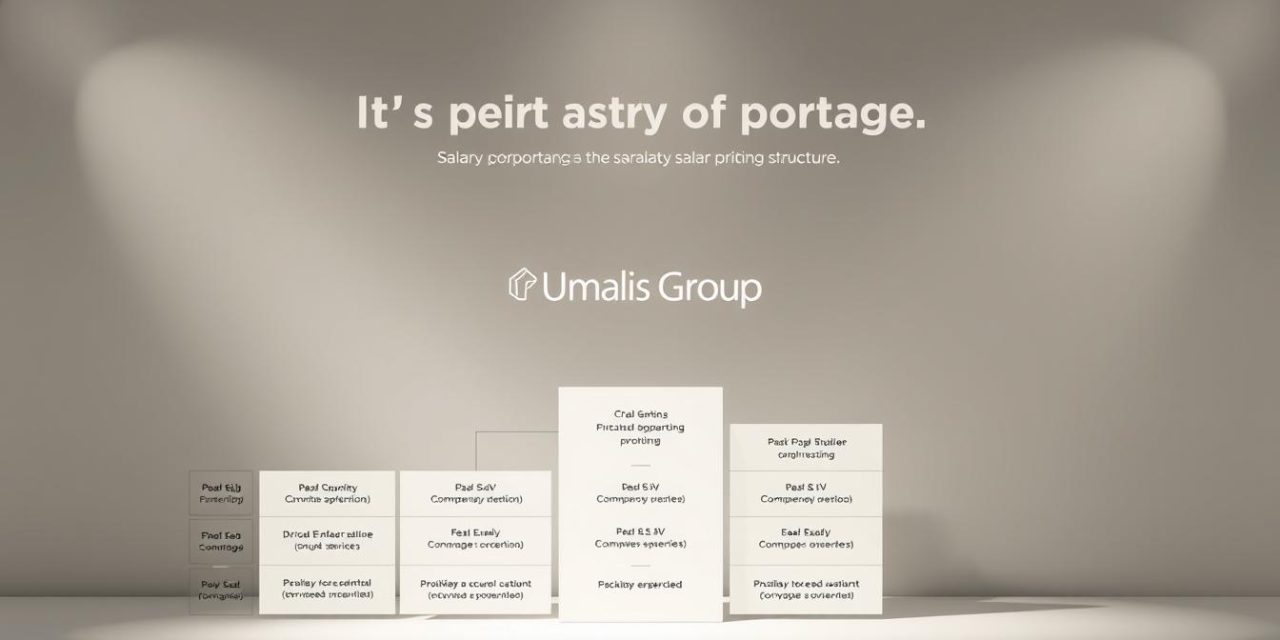Did you know that over 3.5 million professionals in France now work as independents? Many seek the perfect balance between entrepreneurial freedom and employment security. This is where salary portage offers a revolutionary solution.
Salary portage transforms how independent professionals structure their careers. It combines the autonomy of freelancing with the stability of traditional employment. Understanding how this model’s pricing works is essential for maximizing your earnings.
We’ll guide you through the financial aspects of this employment arrangement. You’ll learn how your invoiced revenue converts into a stable salary while maintaining complete client autonomy. This knowledge helps you set competitive rates that reflect your true value.
Our comprehensive approach ensures you navigate the cost structure with confidence. We provide clear explanations about fees and revenue optimization strategies. This empowers you to make informed decisions about your professional future.
Table of Contents
Key Takeaways
- Salary portage blends freelance freedom with employment security
- Understanding pricing helps maximize your professional earnings
- The model converts project revenue into stable monthly compensation
- Proper rate setting ensures your true value is recognized
- Social protection remains intact while maintaining client autonomy
- Clear fee structures help with financial planning and negotiations
- Knowledge of the system empowers better career decisions
Introduction to Portage Salarial and Its Benefits
For independent consultants seeking both autonomy and security, an innovative framework exists that combines the best of both worlds. This employment model, known as portage salarial, creates a unique partnership between professionals and supporting organizations.
Overview of the Portage Salarial Model
The portage salarial system establishes a three-way relationship. You become a salarié porté employed by an entreprise portage. Meanwhile, you maintain complete control over client relationships and service delivery.
To qualify as a salarié porté, you need specific credentials. Either a Bac+2 qualification or three years of relevant experience is required. This ensures professionals have the expertise needed for successful independent travail.
Your société de portage handles administrative burdens. This allows you to focus entirely on delivering quality prestation services to client companies. Monthly activity reporting maintains transparency in this collaborative arrangement.
Why Choose Portage for Independent Professionals?
This model offers comprehensive social protections rarely available to traditional freelancers. As a salarié porté, you receive full assurance coverage including health insurance and unemployment benefits (chômage). Retirement contributions (retraite) are also managed through your entreprise portage.
The table below highlights key advantages of choosing this employment structure:
| Feature | Traditional Freelance | Portage Salarial |
|---|---|---|
| Social Security Coverage | Limited self-funded options | Comprehensive employee benefits |
| Administrative Work | Full responsibility | Handled by portage company |
| Client Autonomy | Complete control | Maintained fully |
| Income Stability | Variable based on projects | Regular salary payments |
Professionals increasingly prefer this model for its balanced approach. It provides the freedom of independent travail with the security of traditional employment. Your entreprise de portage becomes a reliable partner in your career journey.
Tarification du Portage Salarial

Understanding where your invoiced revenue goes is fundamental to setting sustainable rates. The financial arrangement in this employment model follows a transparent path from client payment to your net salary.
Breaking Down the Revenue Components
Your total chiffre d’affaires consists of three main elements. The frais de gestion cover administrative services provided by your société de portage. Social cotisations and your net salaire complete the financial picture.
The calculation begins with your invoiced amount before tax. Your société portage salarial first deducts their management frais. This typically ranges between 5% to 10% of your revenue.
Calculating Your Actual Earnings
After accounting for management charges, social contributions are subtracted. These cotisations represent approximately 50% of the remaining amount. Your final net salaire usually amounts to 47-52% of your original chiffre d’affaires.
Proper calcul of your daily rate ensures you maintain professional credibility. Setting rates too low can undervalue your expertise. Accurate pricing reflects your true worth and supports sustainable activity.
Strategic Pricing and Rate Setting
Setting the right daily rate represents the cornerstone of a successful consulting career under this employment model. Your pricing strategy directly impacts both your professional credibility and financial stability. We guide you through establishing rates that reflect your true worth.
Analyzing Market Trends and Competitor Rates
Begin with thorough market research before setting your rates. Study industry publications and attend professional events. Network with other consultants to gather valuable intelligence.
Analyze competitor positioning and service offerings carefully. Avoid aligning with the lowest market prices. This approach protects your expertise value and long-term profitability.
« The most successful consultants understand that their rate communicates their value proposition before they even speak with a client. »
Determining Your Target Daily Rate
Consider three primary methods for your rate calcul. The target revenue method starts with your desired net salary. Remember that your salary typically represents about half your chiffre d’affaires.
The client rate method applies when clients dictate rates in competitive markets. The market price method uses industry averages as a negotiation starting point.
Mission duration significantly impacts your pricing strategy. Long-term mission assignments might justify modest discounts. Brief but critical projects often warrant premium rates.
| Pricing Method | Best Application | Key Consideration |
|---|---|---|
| Target Revenue | Established consultants | Work backward from desired income |
| Client Rate | Competitive markets | Client budget constraints |
| Market Price | New consultants | Industry benchmark data |
Value your unique skills and experience inventory. Specialized certifications and rare competencies justify rates above market average. Your ability to solve complex problems delivers tangible ROI for client companies.
Managing Costs, Fees, and Social Charges
A transparent understanding of fee allocation ensures you maximize your earnings while maintaining comprehensive social protections. We guide you through each component that transforms your revenue into sustainable income.
Breaking Down Social Contributions and Management Fees
Your cotisations sociales represent approximately 50% of your invoiced chiffre d’affaires. These charges sociales fund your complete social protection package. This includes health insurance, unemployment benefits, retirement plans, and professional liability coverage.
Your société portage charges frais de gestion typically between 5% and 10% of your revenue. These fees cover essential administrative services. They include invoicing, accounting, payment collection, legal support, and access to professional platforms.
Calculining Professional Expenses and Overheads
Legitimate frais professionnels reduce your taxable revenue before calculating your final salaire net. These expenses include travel costs, equipment purchases, software subscriptions, and professional development. Proper documentation ensures these costs are correctly accounted for.
The transformation from chiffre d’affaires to salaire follows a clear two-step calculation. First, subtract management fees from your revenue. Then, deduct social contributions from the remaining amount to determine your net salary.
| Revenue Component | Percentage Range | Purpose |
|---|---|---|
| Management Fees | 5% – 10% | Administrative services and support |
| Social Contributions | Approximately 50% | Comprehensive social protection |
| Net Salary | 47% – 52% | Your take-home pay |
Each payment includes a detailed pay slip showing how your salaire brut becomes your salaire net. This transparency helps you understand exactly where your revenue gets allocated.
Negotiation Strategies and Client Budget Alignment

Navigating client budget conversations demands both flexibility and firm boundaries to protect your value. Each entreprise presents unique financial constraints, from large corporations to growing SMEs.
Positioning Your Value Against Client Budgets
Establish your minimum viable daily rate as a non-negotiable foundation. This floor ensures your rémunération covers all professional costs while maintaining sustainable activity.
Adapt your pricing strategy without compromising expertise value. Different cas scenarios require tailored approaches. Large entreprise budgets may support premium rates for complex mission assignments.
Justify your rates by highlighting concrete benefits and ROI. Prepare arguments that demonstrate how your prestation delivers measurable value. Use past successes and testimonials to reinforce your positioning.
When client organizations dictate rates, evaluate whether the proposed montant meets your minimum requirements. Sometimes declining a project protects long-term profitability.
Detailed documentation strengthens your credibility as a consultant. Clear quotes and invoices demonstrate professional approach to travail. This supports premium positioning in portage salarial arrangements.
Administrative and Contractual Insights
The administrative backbone of this employment model ensures both legal compliance and financial transparency. Proper documentation protects your professional interests while maintaining clear relationships with all parties involved.
Understanding Different Contract Types (CDD and CDI)
Your employment contrat establishes the legal framework for each mission. The CDD (fixed-term contract) applies to specific prestation assignments with client companies. These agreements can be renewed twice, with a maximum total duration of 18 months.
The CDI (permanent contract) offers greater stability for consultants with regular client flow. This contrat travail follows standard employment rules while acknowledging that inactive periods aren’t remunerated.
| Contract Type | Best For | Key Features |
|---|---|---|
| CDD (Fixed-Term) | Specific projects | Maximum 18 months, renewable twice |
| CDI (Permanent) | Regular client flow | Continuous employment, unpaid inactive periods |
Documenting Deliverables and Justifying Your Rates
Monthly activity reports (CRA) track your worked hours and ensure proper payment. This documentation serves as the basis for your société portage salarial to invoice clients.
The collective agreement establishes minimum remuneration requirements. Your guaranteed monthly salaire portage must meet specific thresholds based on experience level.
The Role of the Portage Company in Managing Payments
Your entreprise portage handles all payment logistics from contract signing to salary distribution. They manage facturation, payment collection, and social declarations on your behalf.
Complete transparency ensures you understand how revenue becomes salary. Your compte details include client payments, management fees, and net remuneration.
Conclusion
Successful consultants recognize that the portage salarial cost structure represents an investment in long-term career security. Rather than viewing management fees and social charges as expenses, see them as comprehensive support for your professional activité.
Choosing the right entreprise portage salarial extends beyond comparing percentages. Evaluate service quality, advisor expertise, and transparency in facturation obligations. Your société should demonstrate commitment to your success as a salarié porté.
This mature employment model lets you focus on delivering excellent travail while administrative complexities are handled professionally. Your rémunération reflects both your expertise and the security this framework provides.
Take the confident step toward maximizing both earnings and professional fulfillment. Calculate your target rates and connect with portage experts who understand your specific cas. Build the sustainable career you deserve.
FAQ
What is the typical cost structure for an employee porting company?
The pricing model generally includes management fees, social charges, and professional expenses. Management fees cover administrative support, while social contributions fund your benefits like health insurance and retirement. Your final remuneration is calculated from your business revenue after these deductions.
How do I calculate my net salary in a salaried portage arrangement?
Start with your total billing amount, or gross revenue. From this, subtract the portage company’s management fee, your professional expenses, and all mandatory social security contributions. The remaining amount is your gross salary, from which personal income tax is then deducted to arrive at your net pay.
Are professional expenses deductible in a portage salarial setup?
Yes, legitimate business costs are deductible. These can include travel, equipment, software, or training directly related to your consulting mission. Properly documenting these expenses reduces your taxable revenue base, thereby optimizing your final salary calculation.
What is the difference between a CDI and CDD contract in portage?
A CDI (permanent contract) offers continuous employment, providing greater job security and stability between assignments. A CDD (fixed-term contract) is tied to a specific client mission’s duration. The portage company administers both, ensuring compliance with labor laws.
How does the portage company handle client payments and my remuneration?
The société de portage invoices your client based on the agreed-upon rates. Upon payment, they manage all the administrative tasks: collecting funds, paying social charges on your behalf, processing your expenses, and then issuing your salary. This system guarantees you receive a regular, formal paycheck.
Can I negotiate my management fees with a portage company?
Management fees are often standardized but can sometimes be negotiated based on your expected annual turnover or the length of your contract. It’s crucial to understand exactly what services are included—such as payment processing, legal support, and benefits administration—to assess the value.
What social protections do I receive as a salaried porté worker?
You gain full employee status. This entitles you to comprehensive coverage under the French social security system, including health insurance, unemployment benefits, and a complementary pension plan. Your contributions are calculated and paid by the portage company from your activity’s revenue.





